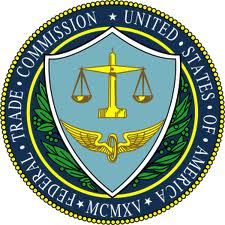Determining whether your business engages in activities that can trigger coverage is discussed by the Federal Trade Commission in just released guidance entitled “FTC Safeguards Rule: What Your Business Needs to Know.” The Rule applies to many businesses beyond the scope of what are commonly understood to be “financial institutions” and has implications for service providers to covered entities.
Posts published in “FTC”
The Federal Trade Commission recently amended the Safeguards Rule, 16 C.F.R. § 314.1, et seq., with significant changes to how an information security program should be designed, what it must include, and who needs to be in charge.
Despite the national and global events that took center stage in 2021, the upward trend in data privacy legislation at the state level continued and with the addition of the amendments to the Safeguards Rule, 2022 brings new compliance challenges for many businesses and financial institutions.
The Supreme Court of the United States recently held that the Federal Trade Commission Act allows permanent injunctions to prevent future violations but does not authorize the Federal Trade Commission to seek, or a court to award, equitable monetary relief such as restitution or disgorgement, except that the FTC may obtain monetary relief by first invoking its administrative procedures and then Section 19’s redress provisions (which includes limitations).
The FTC will soon propose changes it says are designed to align several existing rules under the federal Fair Credit Reporting Act with the Dodd-Frank Act. The impacted rules cover only “motor vehicle dealers” being persons “predominantly engaged in the sale and servicing of motor vehicles, the leasing and servicing of motor vehicles, or both.”
The Court of Appeals of California, First District, recently held that the Federal Trade Commission's "Holder Rule" limitation on recovery applies to attorney fees, such that a plaintiff’s total recovery on a Holder Rule claim — including attorney fees — cannot exceed the amount paid by the plaintiff under the contract.
The U.S. Court of Appeals for the Ninth Circuit held that an online payday lender’s “loan note” violated § 5 of the Federal Trade Commission Act because, although it was “technically accurate,” the lender’s online loan portal made it difficult to discern the loan terms and therefore likely to mislead consumers about the terms of the loan. Accordingly, the Ninth Circuit affirmed the trial court’s summary judgment and relief order in favor of the FTC. A copy of the opinion in Federal Trade Commission v. AMG Capital Management, LLC is available at: Link to Opinion. The defendant owner controlled a series…
The U.S. Court of Appeals for the Third Circuit recently held that the Federal Trade Commission (FTC) has the legal authority under section 45(a) of the Federal Trade Commission Act (FTC Act) to regulate cybersecurity as an “unfair” act or practice affecting interstate commerce. In so ruling, and among other things, the Court rejected the defendants’ argument that the FTC did not provide “fair notice” of the cybersecurity requirements it was seeking to impose, holding that a company is “not entitled to know with ascertainable certainty the FTC’s interpretation of what cybersecurity practices are required by § 45(a), … as…
The FTC and the Office of the New York State Attorney General will host a “Debt Collection Dialogue,” aimed to be a conversation between government and business regarding consumer protection issues within the debt collection industry, in Buffalo, NY, on June 15. FTC Bureau of Consumer Protection Director Jessica Rich and New York State Attorney General Eric Schneiderman will deliver opening remarks. The afternoon program will be held at SUNY Buffalo State and will include a break and a Q&A period. Topics for discussion include recent enforcement actions, compliance issues, and consumer complaints regarding debt collection practices. The event will be the first…
The Federal Trade Commission has posted seven steps debt brokers should follow to keep data secure on the Bureau of Consumer Protection’s Business Center Blog. This latest guidance comes after the FTC requested that a federal court order two debt brokers that exposed the personal information of more than 70,000 consumers online to notify the consumers and give them direction on how to protect themselves against fraud and identity theft. According to the FTC, two debt brokers violated the FTC Act when they placed the personal information of the consumers, including bank account and credit card numbers, birth dates, employment information and more, on a…
Auto lenders are in the cross-hairs of federal regulators. The Consumer Financial Protection Bureau recently announced it is drafting a larger nonbank participant rule for auto lenders. In the meantime, the Federal Trade Commission announced yesterday the filing of a stipulated order imposing a civil monetary penalty and injunctive relief against a subprime auto lender. Big Penalty, Restitution, Restrictions The Federal Trade Commission announced yesterday that Consumer Portfolio Services, Inc. will pay a civil monetary penalty of $5.5 million arising from its servicing and collection of consumer motor vehicle loans. In addition to the monetary penalty, the lender agreed to make certain changes to…











